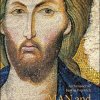Dan Radakovich (born June 9, 1958) is the athletics director at Clemson University. Previously, he was the Athletics Director at the Georgia Institute of Technology, a position he held from February 22, 2006 to October 29, 2012. He was previously the Senior Associate Director of Athletics at Louisiana State University.
Radakovich has a long background in dealing with program finance, as well as large scale renovation and facility improvement. Over the course of his career, Radakovich has managed over a quarter of a billion dollars for various universities' athletic departments.
Radakovich, a Serbian American, hails from Monaca, Pennsylvania where he attended Center High School, just outside Aliquippa, Pennsylvania. He earned a master's degree in business administration from the University of Miami in 1982.
At Long Beach State, he revamped radio broadcast agreements.
At South Carolina, he managed $33 million in facility improvements, including the Colonial Life Arena, now the home of USC's basketball teams as well as other sports.
At American University, he worked to get the school into the Patriot League.
At LSU, he developed a football ticket donation program, and was involved in $90,000,000 renovation of Tiger Stadium.
When hired at Georgia Tech on February 22, 2006, Radakovich beat out former Tech player and head coach Bill Curry and former Tech baseball and football player and baseball assistant coach Cam Bonifay for the job. Radakovich improved the sales of season tickets for the 2006 football season, especially "chairback" or "club level" season tickets; hired football head coach Paul Johnson. He changed the way that athletic seating worked with the TECH Fund. The program also had several facilities changes, including a new indoor practice facility for football, Alexander Memorial Coliseum redesigned as Hank McCamish Pavilion, and rebuilt tennis facilities.
Radakovich oversaw the addition of additional student fees to graduate and undergraduate students at Georgia Tech. These fees were included above and beyond normal tuition to help pay for a poorly managed football team. These fees were not covered by the HOPE scholarship program for undergraduates or tuition waivers for graduate students. This effectively raised the cost of all Georgia Tech students to pay for a limited few athletes. This program was put in place before the great recession and has continued. The fees added under Radakovich's tenure were not poplar from the viewpoint of graduate students.
Also, during Radakovich's tenure at Georgia Tech the football program was investigated by the NCAA. The NCAA asked Radakovich to not tell others that the program was under investigation. Radakovich immediately informed Paul Johnson, the Georgia Tech football coach, that Georgia Tech was under investigation by the NCAA. The NCAA found out that Radakovich had informed Johnson of the investigation and levied a heavy penalty against Tech. As part of the penalty the NCAA took away Tech's 2009 ACC football championship.
On October 29, 2012, Radakovich accepted position of athletic director at Clemson University.
Radakovich is a member of the College Football Playoff Selection Committee.
Source: Wikipedia




